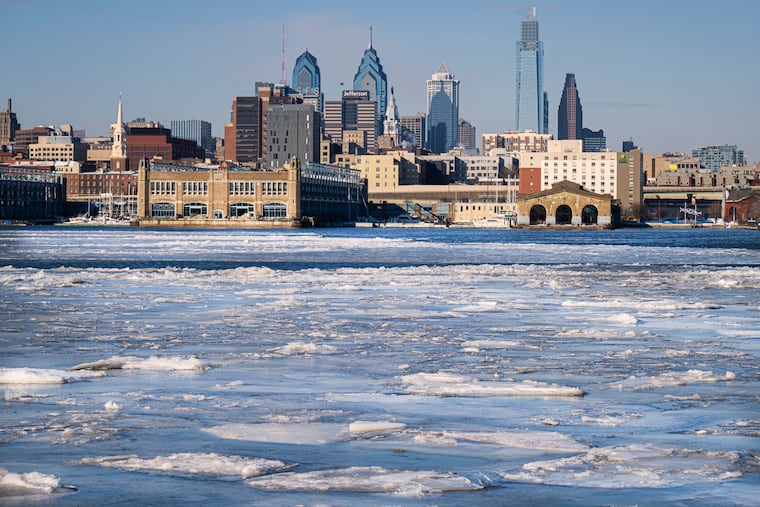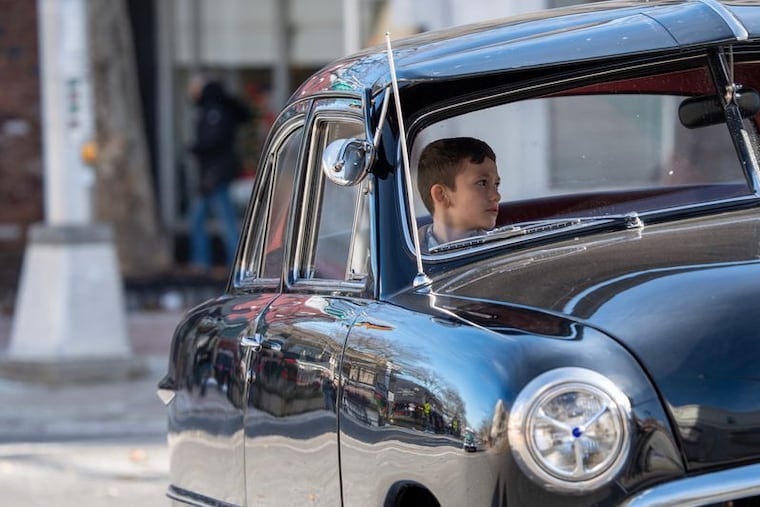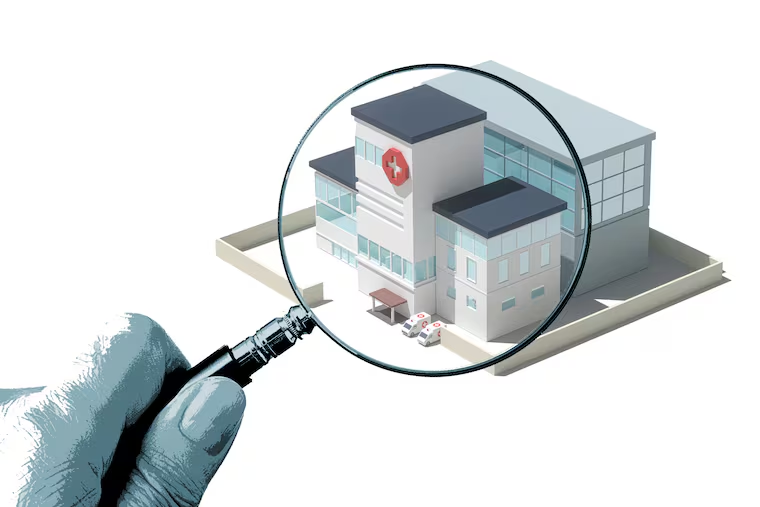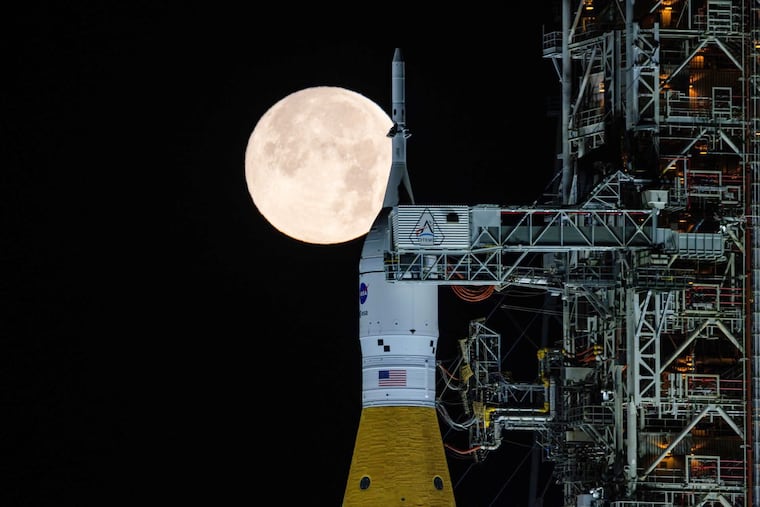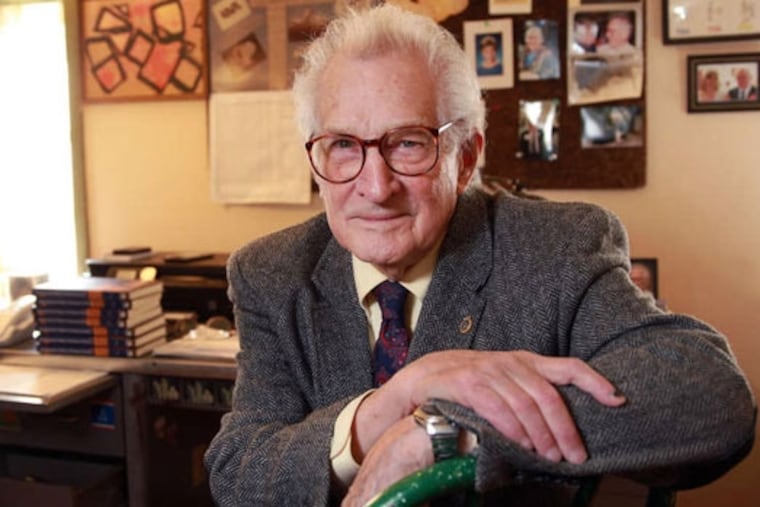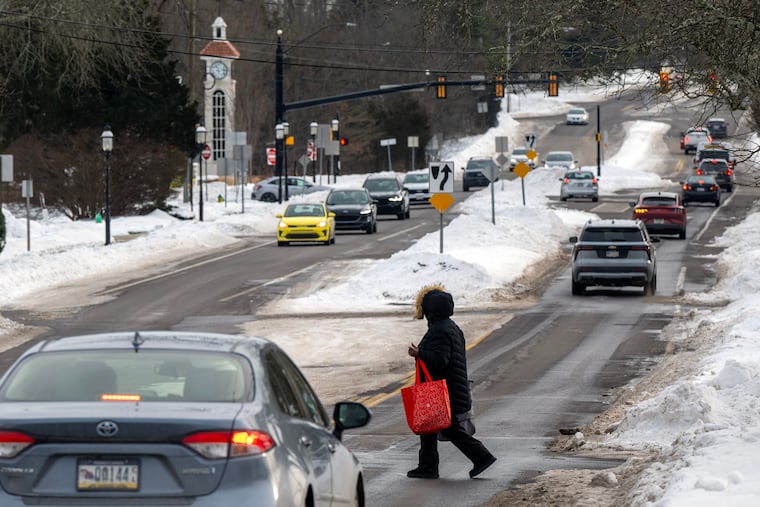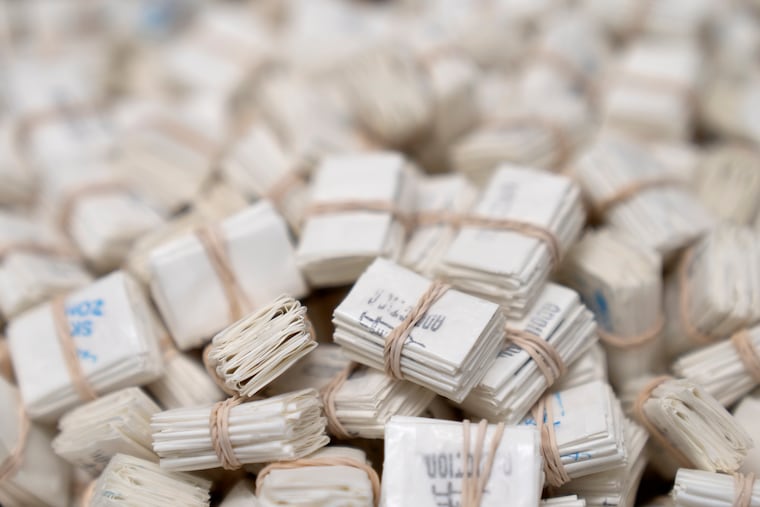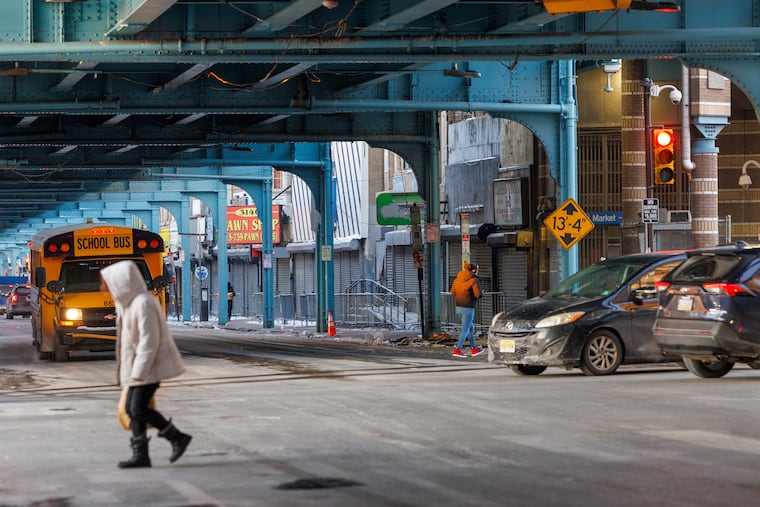Skip to contentJoanna Fong-Isariyawongse, The Conversation
Barry J. Jacobs and Julia L. Mayer, For The Inquirer
Joanna Fong-Isariyawongse, The Conversation
Joanna Fong-Isariyawongse, The Conversation
Barry J. Jacobs and Julia L. Mayer, For The Inquirer
John Lin and Jalpa Doshi, For The Inquirer
BriarRose Edwins and Hayley Goldner, For The Inquirer
Layla Bouzoubaa, The Conversation
Marcia Dunn, Associated Press
Adela Suliman and Kasha Patel, Washington Post
Marcia Dunn, Associated Press
Adela Suliman and Kasha Patel, Washington Post
Noah Robertson, Tara Copp, and Ellen Nakashima, Washington Post
David Ovalle and Cate Cadell, Washington Post
Geoff Mulvihill, Associated Press
Noah Robertson, Tara Copp, and Ellen Nakashima, Washington Post
David Ovalle and Cate Cadell, Washington Post
Geoff Mulvihill, Associated Press
{"ENV":"UG9VAloibAdob10GWAxaQmtjdE50IXBCfnYMCg==","CONTENT_BASE_PROD":"U2AIWlgie1l/XWcDXCFwA3xzfEBgMnQFf3NoQHccd1x/c3wHdzJ0QnxjfE92InNYf3N3W3QMc1xoXXRPdxx0Qn9wdEB0HGRPf2BrW3YhYAZ8YHwGdzJWBHwFaAR3C3BNa2NZW2BUY10=","ARC_ACCESS_TOKEN_PROD":"fm9ZB1hUWVpVb11OYFRaA39waE90MnRPfGBoBWMiYAV8BXxAdAxzX3xwZE93Imdcf2BkB2AMc118BWROYBx8T3xjZ1t0InxCfE14BncidAF8YGROd1RgQnxaYE1gHHwAfGBrW2MMd15/Y11bYAx0BXxdc1tjDHBPa11kT3cidAV8c3tbYAxWAHxge1p0MnNfa2BoQHQydAB8YGBNdiJzWXxjdAZ0MWwHa2NzW2MLYARrXWNbd1RjXWtaZE93MnBNaF1nWmAMf1l8Y39bd1RsAQ==","GRAPHQL_KEY":"fAVnXGMIb0RVWmNfYxxSA39NdE9gHHxMfE1aBXQxY1l8WmRPdAx/WHxaZEB0HG9Zf3NjW3cye1lrXWhNdDJ3WGtjcE90MnwAf2N8BnYyd15rY2hAdzFgBnxgdAd0IWAEfHB0QGABCAg=","GATEWAY_URL":"UnBZQWBVWgZVf39YYBxaBGhNc1p0InBCaGNwBHchZE1rc3ACdDFzWX9zc110MWBMf2NkBnQiYAV8XXNbYwtsTWhNZ1tjC3hPaGBkB2Mxf1h/YHdaYwxwCA==","GATEWAY_SLS_URL":"U1leA1wMc0VTYGNHdAtwA39zeE9jImAHfGN8B2AccE98c2BPYzJzXGhdZE9jInABfE1wQGMydAR/c2BPdFRgTXxjcAZ3IX9ZfE1/W3cxbExoXVVbdAt8BQ==","FEEDS_URL":"UG93T1hVewN8b1VOdDF4A39zZ1p0MnAAfHNkQGMydEx/YGhAdAx3XH9zUk90DHBMfE1kQHYycAF/cGBAYDF/WWtde1p3ImxNfE1wT3cLb158cHxNYzFsBmtaeARjMnhMfE1kBWALbE9rXWdbdiFgBHxzVgo=","RESIZER_KEY":"UnBJQnQLfE9SWl0EWAxaBX9zeAR0MmwEfHNrX3QiXkx+Y3wCdBxSQmhNd150HGRNa11oQHcxZ1x8XXQCYzJkT2tddAN3C39ZaF14B3cid1loXWhPYzJ/WGhdf15jMntYfmNzXw==","GOOGLEANALYTICS_ID":"fmAEXFsubAd/BWdZYyFGA3xwfAd2MmNffFp8T2MidE18cHgGYAxjXn9weE53HGxM","TWITTER_API_TOKEN":"UmBrQ2MyWU1QcGMHdyJaTGhdeAZ0HHRPa3NkTmMMfEJrc3NcdFRkBHxdeE9jMmxMa3N4BncMb1h8Y3RPdFRzWH9NY190VGxMfHBkT2MxcARoXXNadAxvWH9zZAZ3MlFYfmNzXWMyXVloY2hPYwxvWXxga1xjDF4Ea1poQGAcUVh/XX9bdzJwQn5gZAJjC2NYf2B4AnQiUkJrWn9eYwt4AGhaYAd0MX9ef1prX2AMXkJoWmdaYBxzWGtzVgNjIlFYfAV8B2Mhe1xrYGQHYwx8TX9wa1pgMmxCa110T2MiWV58cHdbYzJ7WGtwaAJjDHwEfAVkBWMhb1h+YHhNYDF/XnxaaAJ0MW9ff11dXWMxY19oYH9aYyJ0AHxNc15gVGdffHB8TnYye198WnwHYFR/WH9dVgRgHGdffmYMCg==","GOOGLE_CLIENT_EMAIL":"f1l/Tls+Xk1SWVkGYyFSA39jVk93DHBCf3N8BmMyY1h8cHhAYyJzXnxjZEB3ImNefE18QHYycE9rWngHd1RvXHxwZAdgDH9dfGN/XnQceAR8BXhNYwx4T38Fd1p2Mn9cfAV/W2MLYAVoXX9bdCFjXHxdXVpjMX9YfGB3WncLYAVrXXNadwxsBmtaf1x0MngHa2N8AmMhYAd8XXxOYyF4BWhNfAo=","GOOGLE_PRIVATE_KEY":"VGNVXFwLAFloWmdadiJaBnxzdEB3MmQEfGN0QHchcEJ/TXtbdBxsQmhNeAJ3C3wFf114B3QceEJ/TXBPdzJeT2tdaAV3MWxCfnN4BnQcXkx+c2dfdyJwT39aZEB3MXxCf1p4QGMydE18cGgFdDF4BGtjf1t0VH9dfF10QHcye1l/cGBOdzJ0Qnxga11jDGRNa3NgBHQiZAVoY3wEYzJwT3xjeAR0IXtff2NzXGAMZEJoXWNfYzFnX35gYANjIW9ef2B/W3QcUVx/BXtddiJnXnxwa11jImdYfF17XGAybE18Y1YGYyF/XXxwZANjMmRCfmBgQGMiZ1l8cGtddiFjXnxzWgZjIl1ZaFp7XmAxe118WndcYDJnXH9jd112MXNefAV3XGAcZ198cGNdYFRnWH9jWk1gMm9ef1pgB2MxbAFrYHgFYAxsAWtaY1xjImNYfnB8TmAcfAB/WnhOYyJSAXxzWk90HHAHaF1jXXccfAR/Y3BPdFRsQn5jc11jMnNZf11gB3QcdAZoTWRNdFRjWWhjfE10MndZf3NnW3chf1hrY2QGYzJ8TH9NdE9jC2RMa2N3X3Qxf1xoXXNeYAxnWX5jd113MlFYf3BnXnQyXk9oY1oCdCF/XX9je1t0DHtZfHN0QGAcXk9/c3RPYDJdWWtwd1tgHHdZf1prXHcxbE1+YGgEYyJ/XH5gaAZ2In9ea3NwTWMiUk18BXwFYzF/X2gFd19gHF4AaFpoT2MxfE9oBXwDYwx3WGgFfAdjC3NefFprXHQic19rWnROYDJ3XX9wY1pjIl4BfmB4AmMLc19/YGdeYwt7Xn8FeEBjIn9Yf2NZWmAxY11oYHhPdjJZX2haeAd0MWddfwVgT2MydABrWmNbYyFjX2tdWV1jIWQAfwV/WnYid1l8BWtfdiFvWX5gfARgDGQBa3N8QHcxbE18TWgCdyJSBXxNd1x3IWwEfF1wBXQycE9/c2tfdyF8T39jYAZ0MmRCaF10TXQcbE1/TXQEdDF8B39zfAdgDHRNfGN8B3QLbE1/XXdbdBxsTXxNa150MmAHa11kBnQxY1l8YGtadFR7WX5jdE53InhMf01nXXQceEx/BWtadDF7WH9wf19jC2dcfGNwB3Yyc1loWmNfdDJwTGtafE1gVGNffHB3WmAcUgF8BWAGYyFsQn9waARjDHdZfF13W2AMd15+YGtcdBxdXn9aZ11jMXNYfHBgT2AcVgV/YHxOdjF7XmtwfAdgHFlYaFprXGMxc1hoBXtcYAt4AGtwaE1gDFlYf11WBnQye1h/cHtcYDJvXXxjXVpgVHNdfFp/WmAxf15rYGtddiJ7WHxae1t2Ml1ZaFp0QHYif19/cH9aYDJRX2tzVgRgMndYf2B0B2AMYEJoY3tadAxST3xdaE13IlJMaE1VXHQMXk9oXXNcdFRgBn5jdEB0DHwGfmN0TXccUk98BWhAdyFwTWhjfAN0ImRCf11jXWMxZAV/XWRAdAxzWX9jf1x0MmdYf11zX3cLYE98TWNbdFR4Qmtga15jMWNZfFp/XHQiZABoBWdedwtwQmtgZE5jC3NffFpoBWMLc1l/XVlfYwx8BXxjdANjMWRNf117WmMyd1lrY3ROYAtvWWtadE1jMm9ea3B3XmMxf158YGQDYFRkBXxjcAZgDGRNaFpkBWMyXVloBWtdYwxjWWhaaE1jMntdfwV0TmMib1h/cHxNdCFnXmtaf1tgMWddfHB4BWBUe1lrc1lbYDJ3X2twd11gVHABf3NdXWAxf1lrWngEYAtnXmhjVkBgMXgBfHBnXGMyf158Wn9aYBxnXnxadARgHHdfaGB8AmMic1h8BWRAdzJ4TX5zZ150IWwGa2N3WnQyZAd/YGtfdCF8T3wFaAN3MWBMfmNwA3QydE98c2gGYwxnXH9NeANjC39Za3NzXnRUe1l/YGQHdzJgTHxzYAV0IntYaFprXHQhYE1/TXROdyJ7XGgFY113IWxNa3BnX2MyfEJoY3AGYwxdWGtwd150IllcaAVoTnQidE9rYGdbYBxvWGtaZANgDH9ef3B7XXQMZE1/YGRNdAtvWHwFfE1jIlFca11/XXYyY19+YGQGYwxvX35gY11jIl5MfmBoB2AcUVx8WmQHdCFvWH5wdE9jIlFffHBkT3YyUVx+cHdcYyJzWHwFZEBgMmdffHBgBWALZ11/BX9cdiJ3XWhNWgNgHFlYf3BjX3Yif118TVlbYwx7WXxgf192MWdfa1p7W2AcY19/c3ddYwtjXWhNVkB2InNdfHNZXWAMf1h+cHdfYyJvWH9dUkB3IWBNfnN3XHcMYEx8Y3xOdAtsQn9zYE50MXAHa3NkA3QMeEJrc3NfdFRgTX9Nc1x3HF5Pf2NVXnQiYE18cGQCdDFgTX9de150VGAEfHNzXWAyd1l/cGgGYwxgT2twaE9jC3hPf2NjXWMyb1xoBWtadDJgQn8FZ1tjMW9YaAVrXHchbEJoXWAHYwt7WXxwf15jMllZf2N0AmBUYABoTXNdYAtvWH5wYE90InxMfwVoBGMMdE98c1lbYwxwAX5wfAVjIXtYf1pjW2Myf1loYGteYAt7X3xNVgRjDFlff2NwA2Mhb1loYGtbYBxnWXxwe192IXNZf2B8BGAxY1loYGgGYDJzXn9jXV10MntYfFp/W2BUf1x8WmBAYAxRXH9wd19jMndffwVoTmBUb19/cHhPYDFzX3xzWVpjIWNef01dW2Mhe11+c1oDYwxzX2hdWVpgVHhCf11oBHccfAR+c1VcdCF4TWhdfAN0InRCfF1wBXQibAd8c1VfdDF8T3xddE10C3hMf3N7WnQLcEJ/Y3hPdyJdWH9dcAd0In9Yf018AmMxf1l8Y1JPYwxWBHxzdAR0DGAFf1p8T2MLY1h8WmgEYDJdWX5geANjDG9ZfAVoTnQyZE1+Y3QDYwxzXWhNd1p3IWdffnBrX2Ace1h8Y3dbdDFgTX8FdANjDHddfAVgBWAcd19/c3wEdFR7X2taZEBgMXtZa3NjXWMidEJ8TXRNYyJvXXxaf19jIW9cfAV7XGAye1l/YHtcYyJRXX5gZE5gVG9YfwVoBGAMf1loBXwDYAxnX39wa19gHHNffGB8BnYicABoXV1ediJRXmhafE5jIndZa3B8AmMhcAFrWntedjJ7XX5jWk5jMmddfGB0B3YhbAF8Y1ldYBxRWGgFZ1p2IWNefHB3W3chYEx8c3hOdCFgTX5zc1x0DHhNf2N0TXcheEx+c2ddd1R4BWtjdAZ3MlJMf2N8BHQccE9rXWRNdDJsT2tjZ1p0ImAEf2NwBXQyYExrY3QHYzF/WWhgZEBgMnhCf3NoA2MxeExrXXBAYzJWT2gFZ1tgHFFcaGN0T3YyZEJ8Y3dadBxvX2hNcE9jDFZMf3NaB3QieAF/BX9adCJ/X35gfE50IWNef1pnXXcycEJoYHdeYwxnWGhjcAN0HFFea1pjWmMhYAB/XXAFdiJsTH5wf1p0MnRNaAVkTmMhe15oTVoCYFR7XXxga1xjC29YfFp4BWAMe11+Y3wCdiJZXH9waANgVHtea1p0T2MMb1xrYH9dYwtwAHxgfE9jMXtYa11aQGMMe1hoXVZPYyJ8AXxdVk9gC2ABfmN3W2AxY19/XVlcdiJZXn5wfEBjMl1ffmNWTWAxZAF+Y3AFdCJ4QmtdeAZ3VHwFaE1rXncieE9/c3AFdBxsTX8FZ190DGxNaGNjXncicAR/BWQEdFR8Bn9df1tjMmRNfF1/X3chb1l+YHQFdBxwTWhNcAR0ImRCa118A2MMbAV8c2dcYDF7WH9jcE50MWNZfAVoBGMxZEx8c2tcdAxvXXxgZAdjMWNZa1pkB3cyZ1hrWmhPdjJ3X2hgd110In9ZaFpoTWAcUk18YGdfYzJ3XGtddAR2MXtffFp/WmBUcE9/BWNeYzJzWWgFe19gHHtcf3B/W2MhY1loWmgHYwtnXmtddAVjDHtcaGB0BGMhZ15oWndbYAxgT2twZ11gDGABa2BkA3YiXV1rcHhAYzJdXHxgeE1jC2NfaAVjWmAMUgFrcGdfYBxjXn8FYE92IX9dfwV0BnYhf15/Y1YHdiFnXnwFeE9gMmQBfGB7XmMyZ1l+YHQCYzFkQn9zf1p0C2RMfF1kBnQxbE9rXWBOdwxSBnxNdAZ0MlYFaF1wBHQcdE18Y3wHdyJ/WGhNYAJ3InhCa3BrX3QcXVloXXNadCJwBX5jeEBgMXhNf2N0TnRUfE18YGhPdCJ0T2hadAdjMXtcf013XXQMc1l/cGROdCJgTX5jdANgC2BNfmNjW3QiUk1rY3BOYBxeTWtdcEBjMmwAfnBoBHcidE9/YGAEYzJjX2hgYAVjDGBNfGNZWnQhfAF/YGgGYzFvWH9ze1pjIndff3BkTWMLc1h/cGgGYDFjWXwFa19jInxNf2B3WmMLe11/cGRPdiFnXX9wY1pjDGNff3BoBGAyd19rWmQDYBxnWX9ddANgDFFYfF1WBmMMXV98WntbYwx3WGtaZ1xgMl1ffmBgTWAcb1x+YHgDdDJwAWtafAd2IXtcfnNdWmMiZ15rYGhAYDJvXX9waE10MWQGaE14AnQhbAd/c3xAdAtkTH5jZ1x3IWQHaGNzW3cheEJrcGROdBx0TXxNcE9jMngEa2N/W2ALYEJ+cGgHYzJ8T35jdAV0IX9ZaE1kAmMMf11/Y3BAYzJvWH5wZAJ3ImxCa1pnXncyeEJ+c1oGYwxsTWtzZAR0Ml1Ya1pkBHQycAV8YGhPdyF/WGgFZ11gVHtYfmB8T2Myd19rXV1eYFRkBX9afAJ0Il1Zf2N0A2MMWV9oY3dbdiJzXmtwd1pjMl1ffHBrXXRUb158WmRPYyF4AX9geE12MmNYa3B8AnQiWVl/cGAGYzF7WWtgd19gMXNZfwVoTmAMY15rYHQCYBx3X2tweE9jDGdefnB0BWAMc1l/Y1lddiJsAX9aYAJjMl1Yf1p0QHYydAF/Y1oDYDJ/XWhgZAd2IWNeaFpgBWAMe15rXVYDYDJ3XHxwdAVgC2AAfGN0B3ccfE98XVJOdCJ8TGhNfAd0VHBPf3NzXXQcYAV8c3RAd1RwTH9Nf150MWBNfHN8BWMxZEx8c2ROdDFwB2tjc1x0MWdZfAVnWnQcZE9+c3wCYAxgQmtwdAd0IlZNf3NkB3Qif1hoY39bYwt7XX5gZE12MW9Yf3BnWmMxeEJ/c3QHdCJwQnxdZEBjIXNda3BgT2MLZ1hrWmdbYzF7WGtdeAR3IntZaGB7W2MMVkJ/BWgGYBxWT39zd1pgVGdda3B4A3Yxc19/YGBAYBx8T2taY11gMlFYfFp0TmMyc11+YGBNYAx/WH9gY15gMnddfwV8BGAMcEJ+Y1oDYDFvWWtgfAdgDHNdfnB4TXYib15oWnhNdjJdXGhgf11gMX9ca2BnW2Mhc15+Y1ZPdjFvXn5gYE5gMmRNfmNWAmAyXgB/BWAGYzJgAH5wY15jIXtdf3B4B2AMcEx8TXdedAxeQmhdaE93InxCa3N7W3QcbE9/XWdadzJeTHxdVV13DHgEf013WnQyYEx8XX9fdyJ4TXxgZ193InBMfwV7XnQcZ1hrY2ROdDJRWHxwaARjMntca2N0TncxZ19/c3RPdCJsT3xddEB0ImRPaAV0BHRUe11rc3deYzFnWWtgfAN0MllZfE1/XWAyf1hoBXdfYzJ/WWhdcAd0MXwEaE13XmMLc11rWmteYwxRXnxaYAR0MnhNa110AmMhe15+c1pAYBx4AGhaZE1jIndea3N/WmMLc11/WmtadjJ0TX9zXVxgVHteaAV/WmBUb1l8cGdbdDFwAH5gf11gMl1ff2BgAmAyd198XXQDYBx/XXxjXVpgMWNYf1p3X2AMUVl8WntdYyJZXn8FYAVjDHNfa3NWQGMyc19rcHRNYyJ/XmhaYE92IlIBa1poBmMheAFrXVpOdDF4Qn9zcAd0C2wGaF1STXQccAZ8c3tcdBxwTXxzd153VHhPa2N/XncMeAd8c3BAdAxkBXxgZEB3MXBNf01/W3QibAZoTXQCdzF8BH9ddAd0InhNf010T3QMXkJ+Y2QEdyFkBHxzc1t0DF5PfnN7X3RUcE9/UAwK","BLUECONIC_ENDPOINT":"UHN/WFshBFtoY1pAXAhkA3xgaAZgHHQGf3N4BncycAV8cGgHYBxgAXxwY1p3InNff014BmMxY1l8YGdbdwxwTGhdd153HHgGa11SBnccVgd8TV1aYyFgQmtgeAZjMXwE","BLUECONIC_STORE_ID":"f2AAWnQxBQRTcHwDdyENA39jYEB0DHQEfHNgQHYiVgd/YHRAYyJ0TH9zeAZ0DGNda2B4TnccVk98WmQHdyJjXHxjdAdgDGRMfF1SBHcifEJ8XVoFdCJ4AX9NaE90DHtYf01SBXcMe1hoWndbdzJ4Tw==","BLUECONIC_KEY":"fFlVR2M+Z01/BWtPdyEBA39zfE92InNdfHB0BnQMd11/Y1pAdjcICA==","BLUECONIC_SECRET":"a1ldX2MyewV8b15OWAt4A3xNeE52MnxPfGN4BncMdEJ/c2AHdDJsBXxjcE5jC2AGf2NkTXcceAR/Y1JAYwt8AXwFfAd0InBMa2NZWnchbAV8BWBNdyF8BnxNWk90HHAAaF1aQGMnCAg=","AMP_AUTH_BASE_URL":"UHNZAlsye0BSb3xOWz54A3xzf152InRNfHB0B2MicEx8c3BPdyJ0B3xzd1p0DHBPfwV0B2MxYAB/c1ZPYBxkBWtdfAdjDHwEf3BjW3QMZE9rXXBPdwtwT2tjdE53IWwBf01jWnYhbAZrYHtfYyFvWWtddARjMndfa2NZW3YiWV1oBX9bYAEICA==","AUTH0_DOMAIN":"f01rRVgLTUxrYEUGYwxWA39jWgZ0HHQAf3NgB3cycAR8YGhAdyJ3XGtjZAd0ImRCaF18T2MicAZ8Y1pAYzJzXg==","AUTH0_CLIENTID":"fnB8AloxTU1rTXdYXQtkA39jcE92MndffF1kQGAMfAZ8c1pAYzFjXHxdUkB3MmABf3NgQHcMZ1l8TWtadiJ0Bn9jaE13HGdYfHNoBGMLYAVoWnhAdwx7X2tdaAZ2MmRCfHBkQHQRCAg=","PIANO_ID":"a3B7X1wIb0xQcElPd1R4A3xdaEB3MnxMfGB0TXcMc198cGBAYzJ3WX8FeAo=","MIXED_CONTENT":"U1ljRFscYExSf3dHWyFCA3xzcE90MndZf3N0QHQyY198c2RAdDJwTXxzUk93MnNff2B3W3Yic19oXVIHdCJkB3xwZE90DGAGf2N7W2ALb198Y2gGdAxWT39dVk10IWAEa11dWnYhYAY=","VIAFOURA_SITE_UUID":"a3NZWloucAZSYF0FYwxgA3xzeEBgHGBCf3NaT3ciY19/cGAGdCJzXHxaZEBgDHwFaFpkTnQMeAV8TXQEYBxkB3xafE1jMnNefwVgTncyVkJ8WmBOdyJ7X39NY1p0DHtefF14TXcMbAd8TVYFYyJ7WQ==","GOOGLE_CLIENT_ID":"VQUATmMxQkxoBVledDJaTX5jcAN0MnQFaF1jXncxeEJoY3QHdDJWBGhNd1xjMWwFaAVkB2MxZAV8Y3dddDJgTWhNY110HHgEfAVoAmMxZ1l/BXhPdAxnWWtje1pgC3xMf1pkB3QMdE9rXXwCYDFwQnxgZ1xjMllca1prWnQiXVloWmhNdCJSAH9aZ11gHFlYa3NdW3Qyd19oTXgHdCF7X2tjWk50IWxNaFpgTncyf15oTXRPdCJsTWtzd153InBNf3N0BGAcYAV/XXNfdDJ0CA==","AUTH0_BASE_URL":"VFl7XF0Mf11SWkFcY1RGA39jaE93MnddfGBoB2MMY158c2hPdwxzXXxjYAZgHHAHfE1rW3cLbEx8c11bYAx3XWtgeE9gDHgFa2NSTWAMeAF8Y1ZAdjJWBXxdY1pgC29ca11zWnRUb19rWmQK","CHARTBEAT_DOMAIN":"UHBdBmAxTUNSWl1PYD54A3xzaEBgHHAGf3BoB3cydAF8c1ZAdwx3WGtjeEB3InNY","G_OPTIMIZE_CONTAINER_ID":"VU1wBXccXUZTf2QHWzJaTHxdVVt0IXxCa3N8TnRUYE9rc2AFdwx8Qn9jfAI=","G_TAG_MANAGER_CONTAINER_ID":"U298A3RVe0Z/YGADdBxaT35jf153DF4Hf2NrXHQcdEJ/c3wEdwxWB39QDAo=","SF_CLIENT_SECRET":"fm93BncLb0FTf3RPdDJkA38FeAd3MngHfHB8QHQiYAZ/Y2QHYyJRWH9NfAR0MnQGfGBoB2AMbAV8XWhNYyJ4T3xNfAR0DHAAf114BHQMeAF8TVoGdxx0B3wFdAd0HHxMf110BXQMYE9/XVJPdiJ8TXxzfEBjDHQAfE1oTmAcb15/YHgGYDF8BXxzeE93MmBMfHN8QHQydE18c1VfdjJkTH9gZAd0IndZfHN4B2AccAZoTWhAdDFsBX9wZAo=","G_RECAPCHA_V3_KEY":"U2NdR1pVUVpTTXNYdyFWA3wFYAR0HHBCfGN0BHQyd1h8TWQFdAx3XX9NZEB0DHhCfGN0Tncif1h8XXBAYyJ8B39jcEBgMmdefFpnW2AxfE9rY3RAYAxwB3xNUgZjImBPfHBgBWAMcE18Y3gFYAt7XH9ja1p0InABfE10Cg==","G_RECAPCHA_V2_KEY":"a11dQncuf0xUcGcCWD5sA3xafAZjInwFf2NoTXQidEJ8YHxNdwxzXnxwdE50Mn9cfF1STXcyb158Y3RNdCJ4BHxjVk92Mn9ca1pgQGAcYAZ8YGtedzJwTXxaYAdgMnQHfGB8TXcMdE1rYGgGYyF7WX9Na1p3MnRMfF1oCg==","GROWTHBOOK_CLIENT_KEY":"UG94T1hUBFtTWl0EWyJaBHxNc1t3VGRCa2NnX3QyVkx/XXRPdAxWTWhjZAd0IXBNaE17WncyZE1rY3QCYzJ0CA==","SOPHI_HOSTNAME":"UFoBAlshAF1oBQAFXCFwA3xzYEB2ImNcf3N4B3ccdAd8Y1pAdAx0AWtaeE93DHNea2NWB3cicE9rYHgK","HTL_SCRIPT":"Ulp7AmMMXUVQb3hNWgtSA3xzeEB0ImAHfHN4BGAydE98Y1pAYzJkQn9gaE90InQGfF14B2MMcAV/cHtbYyJjWWtddAd0Imdca2B7WmALYARrWnxPYyJRWXxNVgZ3IngGaFp3WmMLYAF8TWNbYAtsB3wFa192IWxNa11aTncMUVl8Y3dddjJ8TWhNe1x2MW9Z","LIVEBLOG_WS_SERVER":"VU13Q1sydwd8b1lZdzF4A3xjWgZ3IndYf3N8T3YycE1/cHhPdxxwAGhdaE93InRCaF1gQHQic11/cHxAdxxnWWtaaE92IlFdf2BkB3YibE9rY2daYFR/WQ==","SOPHI_SCRIPT":"UG9jTloIY1tSY3dFdzFeA3xjWk93DGNef3B4T3QyfE9/cGBAYBxgBn9NcAZ0HH9cfGB4B3ccdE98c1pPdwx3XWhdWVt0C3wAfF14BncLb1l8cH9bYDFsBGtjYE1jC3xNfFp/X3chb1lrY2tbdwtjXHxdVk12IWABa1pkBXchYEJoY3NddjJ3XmtzZE53IWNfa2N7WmMyf1h/Wn9dYDJZX2hNZ113MWdca2BkCg==","STATS_WIDGET_CLIENT_ID":"fnBJQVwyY0J/WlleXQt4A39zWkB0HHNffGNoT3Qcd1x/Y1ZAdxx0B3xzZE93HGRCf2BoT3ccdAF/c3RAdAxnWXxjY1t0DGde","_id":"35fef05e66fc909289dac92f9aa23ad15d1d9dd887228ec941cc9cf372f5993d"}

